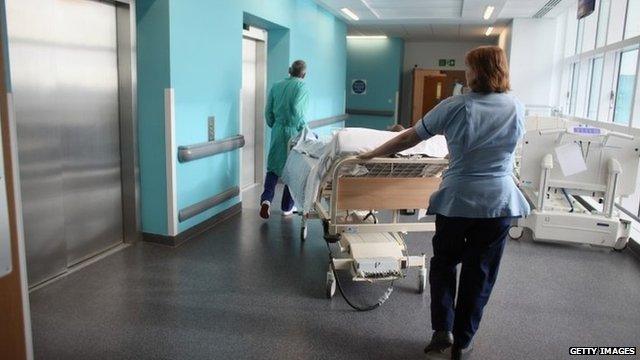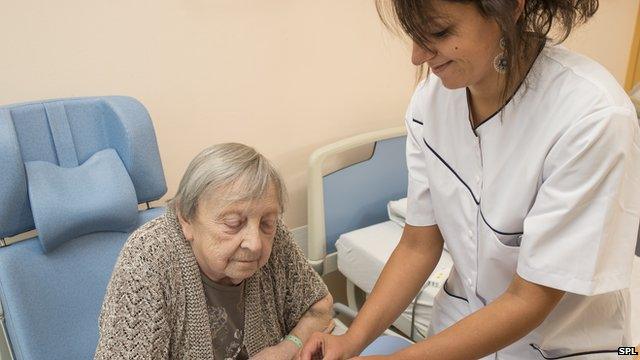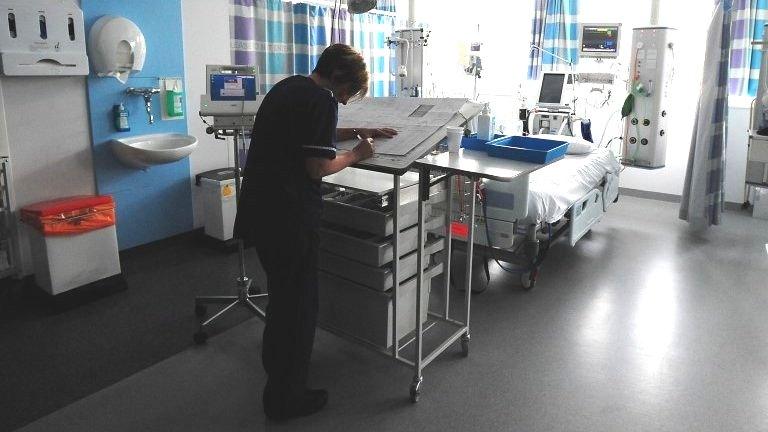'Nurse ratio' at weekends key to stroke survival for patients
- Published

Wards with fewer then two nurses caring for every 10 patients had higher risks of death
The number of nurses available at weekends - but not the frequency of doctors' ward rounds - affects chances of survival after stroke, a study says.
Researchers found patients admitted to stroke units with the lowest ratio of nurses were most likely to die in the month after a stroke.
But weekend ward rounds led by senior doctors did not appear to make a difference to the death rate.
The PLoS Medicine study analysed data from more than 100 English hospitals.
Weekend deaths
A growing body of research suggests patients admitted to hospitals at weekends do not recover as well as those arriving during the week.
Scientists analysed data from 103 hospitals, noting the ratio of nurses to patients present in stroke units at weekends.
They also charted whether senior doctors carried out ward rounds on Saturdays and Sundays.
Wards with an average of 1.5 nurses caring for 10 patients had higher death rates than wards with three nurses to every 10 patients.
And researchers calculated if nurse ratios were doubled to three per 10 patients, one extra death could be prevented for every 25 admissions.

Nurses play a key role in keeping patients clear of infections and pressure sores
They found most wards had senior doctors conducting ward rounds five days a week and almost half provided consultant rounds seven days a week.
But there was no difference in death rates between the two groups.
Nutrition and hydration
The paper does not look at the reasons behind these trends but researchers speculate aspects of nursing care - such as attention to nutrition and hydration have a major impact on surviving after stroke.
Dr Benjamin Bray of King's College London, who led the research, told the BBC: "I would suggest the role of stroke doctors is still very important but the risk of death is the wrong thing to measure when considering their impact.
"Doctors play a vital role in speeding up recovery and helping people return home quickly. But we would need to carry out a different study to measure this."
He suggested hospitals may take this type of study into account when considering staffing levels.
But further work looking more specifically at the number of times patients were seen by doctors and nurses would provide more details on the complexities behind this, he said.
Dr Peter Carter of the Royal College of Nursing, said: "It is unacceptable that stroke patient mortality rates are higher at weekends when staffing levels tend to be lower.
"Driving up standards of patient care in the NHS requires commitment to investing in the nursing workforce.
"We're worried that this isn't happening and that there remains much more work to do in providing safe staffing levels for every health setting."
- Published19 August 2014

- Published15 December 2013
